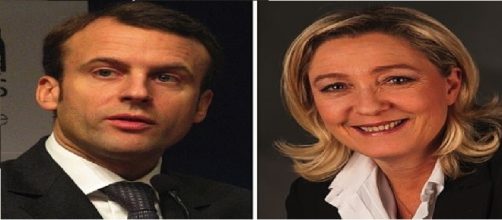French President Emmanuel Macron has u-turned on his tough rhetoric towards Brexit Britain.
Instead, Mr. Macron has called for a pragmatic relationship with the UK once it leaves the EU, cooperating on defence and counter-terrorism.
In an exclusive interview with The Guardian newspaper, he said both countries' destinies are linked together.
This contradicts one of his key messages which was to punish Britain for voting to leave the trading bloc.
'Still an option for a "soft" Brexit.'
He said there is still an option for Britain to choose a 'soft' EU exit, saying the door on that option is not closed.
But he warned that discussions following the beginning of the Brexit negotiations on Monday must ensure the survival of the EU is preserved for the long-term.
Mr. Macron warned there would be a change of policy on migration cooperation at Calais.
He added the new administration wants to re-evaluate its refugee and asylum seeker policy.
The French President will be pursuing a policy of closer European integration at his first European Council meeting today, in a move to regain support from the lower middle classes on issues like social protection.
He also attacked Central and Eastern European states for failing to respect the democratic values of Europe, saying they portray the trading bloc as a supermarket.
'Maintain close cooperation.'
The En Marche politician said he intends to maintain close cooperation with Britain on defence and counter-terrorism.
He said this is because ISIL terrorists do not know Europe's borders like European politicians do.
He has promised to end the emergence of new shanty towns in his country, urging the UK and France's cooperation on the issue to evolve over time.
After his election victory in May, Mr. Macron's advisor, Jean Pisani-Ferry, insisted his boss had no interest in punishing Britain for Brexit.
However, he said the French President would be tough and demanding when negotiations began.
During this year's French presidential election, the En Marche candidate said Brexit was a crime and warned the British Government there would be consequences if it pursued its divorce from Brussels.
He also said he intends to rebuild Europe and that the EU is part of the solution, not the problem, to France's issues.
'No generous post-EU deal.'
Mr. Macron said in an interview with Bloomberg last year that he wants to avoid awarding Britain with a generous post-EU deal, as it would provide other countries with incentives to leave.
The EU became a key battleground theme during this year's presidential election.
The En Marche candidate's National Front rival, Marine Le Pen, promised an EU referendum similar to that of Britain's.
She also pledged to withdraw France from the Euro.
However, she only achieved a 33.9% vote share compared to Mr. Macron, who won a staggering 66.1% of the vote.
But he received much criticism after the campaign for snubbing the French national anthem in favour of the EU's Anthem of Europe.
Traditionally, French politicians have declared their victory to the sound of La Marseillaise, which has stood as their anthem for hundreds of years.
Instead, the current President blasted the anthem of Europe 'Ode to Joy' from the speakers as he waved to enthusiastic crowds outside the Louvre Museum.
Although he later sung the French national anthem, many French voters reacted angrily on Twitter.
He was attacked for his subservience to the European project.
Ode to Joy was written by German musician Ludwig von Beethoven and based on a poem by countryman Friedrich Schiller in 1785.
It was used as a substitute national anthem for the Unified Team of Germany during the Olympics from 1956 to 1968.
It was later adopted by the European Economic Community, the original name for the EU, in 1985.
In contrast, Ms Le Pen danced along to iconic tunes that ranged from Lady Gaga's Bad Romance, I Love Rock and Roll and the YMCA song.
Mr. Macron's party, En Marche, was only formed last year, and managed to secure 24.01% of the vote in the first round of the presidential elections, compared to the National Front's 21.3% share.

